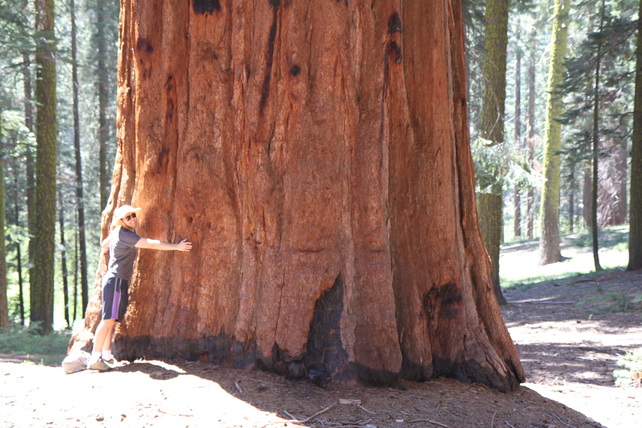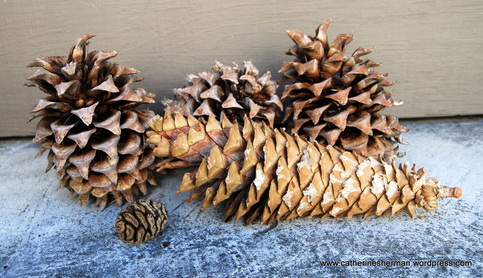 I heard from Ryan Holiday in his latest newsletter about The Subtle Art of Not Giving a F*ck: A Counterintuitive Approach to Living a Good Life by Mark Manson. I thought the title was humorous, and I didn't think the book would be that serious. However, it turned out to cover several serious and useful topics like Stoicism and finding out your true values in life. The point of the book is not about being indifferent or not caring about anything; the point is to only care about the very small number of things that really matter to you (core values) and not sweating the small stuff about anything else. I liked how the chapter titles and main messages were very much contrarian to typical positive-thinking psychology stuff out there. I also identified a lot with the concepts of realizing how much you suck and aren't special and how constant learning and growth and failure is part of life ("you're wrong throughout your life because you're always growing and learning... just trying to be less wrong each day than before"). 1 don't try Wanting positive experience is a negative experience. Accepting negative experience is a positive experience. Backwards law Only focus on the true important things Subtlety 1: not about being indifferent. It's being ok being different. Willingness to stare failure in face. Fuck it to everything unimportant in life. Subtlety 2: first find what to give a fuck about. Find something meaningful. Subtlety 3: you're always choosing what to give fuck about 2 happiness is a problem Life itself has suffering. Pain and failure inherent. Disappointment panda. Tell truths hardest to hear. Suffering biologically useful. Problems never go away. Solution of one creates another. Happiness comes from solving problems not eliminating Emotions are overrated. Biological signals to nudge you. Question them. Hedonic treadmill. Everything involves sacrifice. Choose what pain u want to deal with because every path has it. Joy is not in summit but climb itself 3 you are not special Entitlement Things fall apart Not that great and not that horrible Ordinary things are what actually matter 4 value of suffering Self awareness onion 1 Actually know own emotions 2 Ability to ask why 3 Personal values Values determine ur problems Good values are reality based and controllable 5 major values Responsibility Uncertainty Failure Rejection Contemplation of own mortality 5 you are always choosing You are responsible for the problem You choose how to respond to events Fault is past tense. Responsibility is present tense. U always get to choose. Not about cards u r dealt but choices u make 6 ur wrong about everything but so am I Wrong throughout ur life because always growing and learning Just trying to be less wrong each day than before Testing ur beliefs is scary Certainty enemy of growth Ppl find patterns in randomness and believe they r right False memories Tend to Avoid opportunities that threaten to change ur view of self or identity See yourself in simple identity not in narrow unique way. Be less certain of self. What if I'm wrong? What would it mean if I'm wrong? Would being wrong create worse or better problem? Much more likely ur screwed up than everyone else 7 failure is way forward Just do something Action can be cause of motivation 8 importance of saying no Rejection makes ur life better 9 and then u die What will u leave after ur gone Nothing to be afraid of Accept own death
1 Comment
 So many people over the years have recommended I read Zorba the Greek, and I finally did this past month. It was a bit slow to get started, but when it did, boy was I hooked. Such heart and such poetry in a novel. I distinctly remember the lump in my throat and the strange liquid in eyes as I reached the end of the story. This book is an inspirational tale of loving life and women and living for the day. it's about finding meaning in people and the world around you, not in books or writing or pursuits which are purely intellectual. Yes, some of the literal messages about women may seem shocking/outdated: ideas like women are "sensitive, delicate creatures" who get more pleasure from giving pleasure and are easily made to feel embarrassed/delicate, the importance of being careful with them, sometimes providing them with a firm man's touch and confidence so they feel secure. But I think these all contain some grain of truth that doesn't change with time, and the core feeling is one of love and admiration; women are the only thing that can tame and control Zorba's wild spirit. The book is also an irreverent loud voice calling for loving each other and adventure in life rather than externally imposed structure, constraints, or religion. I think Penn Jillette would like it a lot. Below are some of my takeaways/main ideas.
Last month I was lucky to visit the Sequoia, Kings Canyon, and Yosemite National Parks for the first time. It was relaxing, educational, and fun. And I learned a thing or two from the trees. 1. Certain things have been here way longer than modern man and have survived through thick and thin; this should give our lives perspective. The giant sequoia trees I saw were literally thousands of years old. The General Sherman Tree, the largest known tree on Earth, is 2,500 years old. These trees have lived through all the major wars of history, enormous natural disasters, and huge changes in climate and civilization around them. Compared to that, what is our relative importance? What can we learn from their survival? 2. A giant sequoia comes from a tiny cone. In the picture above, the cone for the giant sequoia is the small egg-shaped one, whereas the other cones that are much bigger come from (eventually) much smaller trees like pine. This goes to show that you can't judge one's full potential from one's modest beginnings and that sometimes the biggest things come from the humblest starts. 3. Sequoias need fire to live and grow. Fire is necessary for their survival and replication. At one time firefighters stopped forest fires too early, and this harmed the tree population; now they know the importance of allowing natural fires to do their work. Fires increase the temperature of the cones that fall from the tree, which burns away the outside and activates the seedlings inside to allow reproduction.  4. Sequoias help each other out. They grow deep roots underground and share water with each other. This is how they are able to survive extremely long periods of drought. 5. People tried to cut down giant sequoias that grew for thousands of years for their wood, just to discover they weren't really usable for that purpose. How do we avoid such mistakes in the future?
|
Archives
June 2024
Categories
All
Subscribe |



 RSS Feed
RSS Feed
